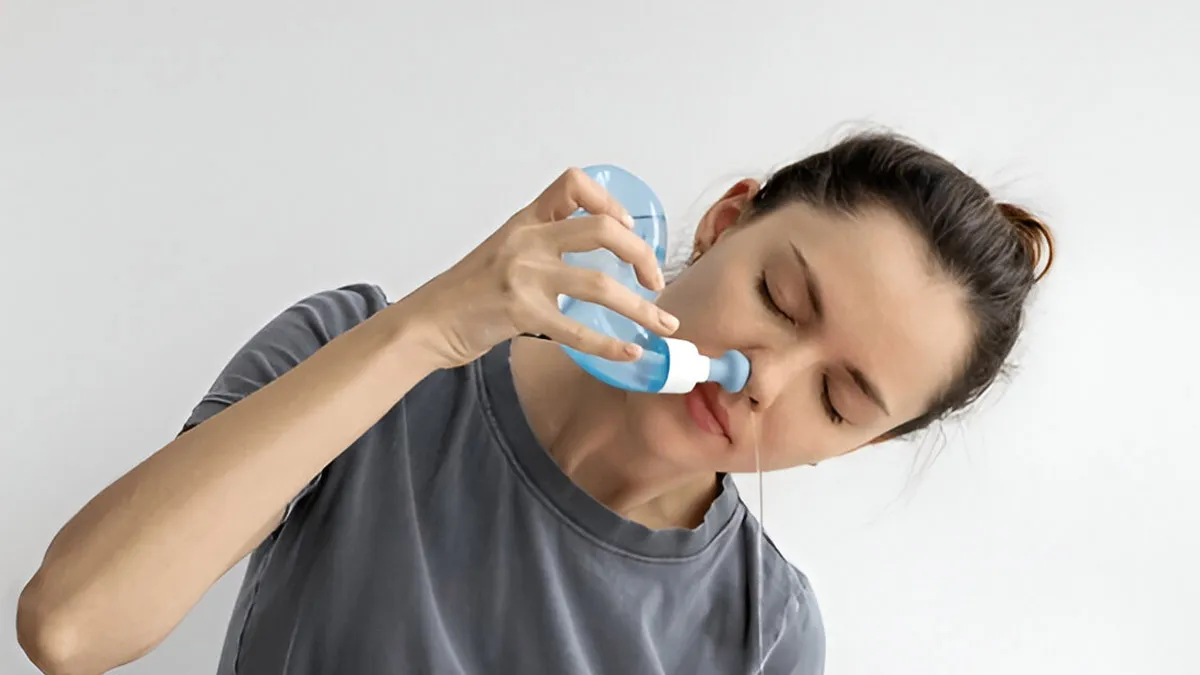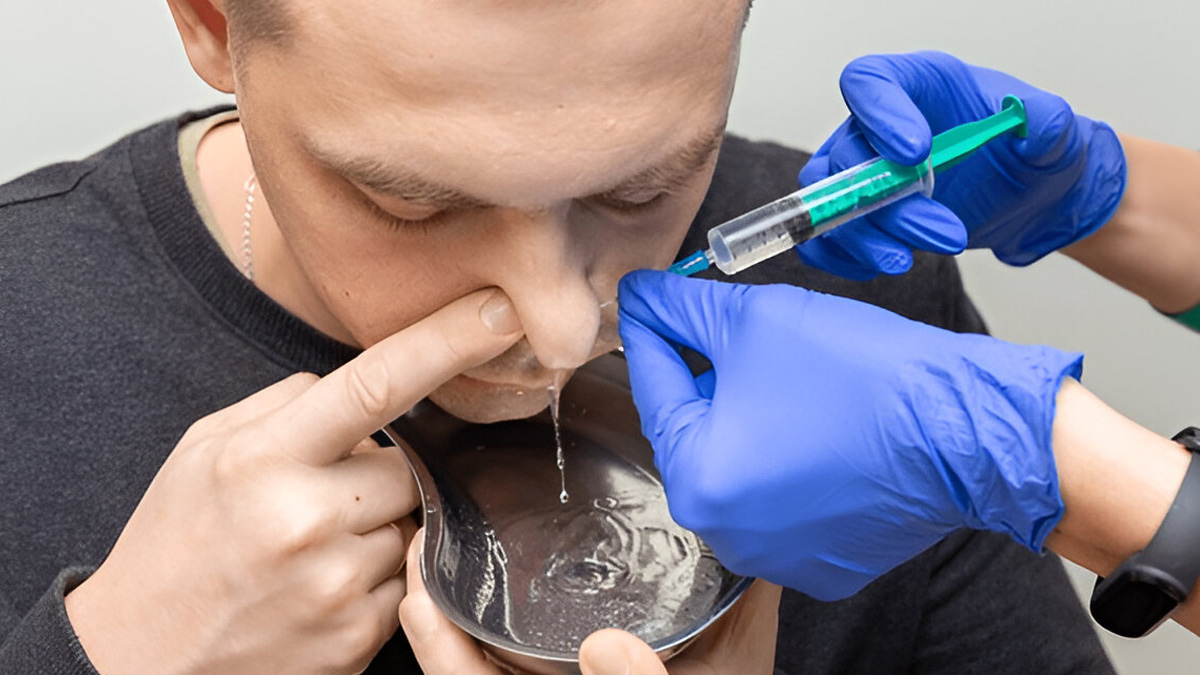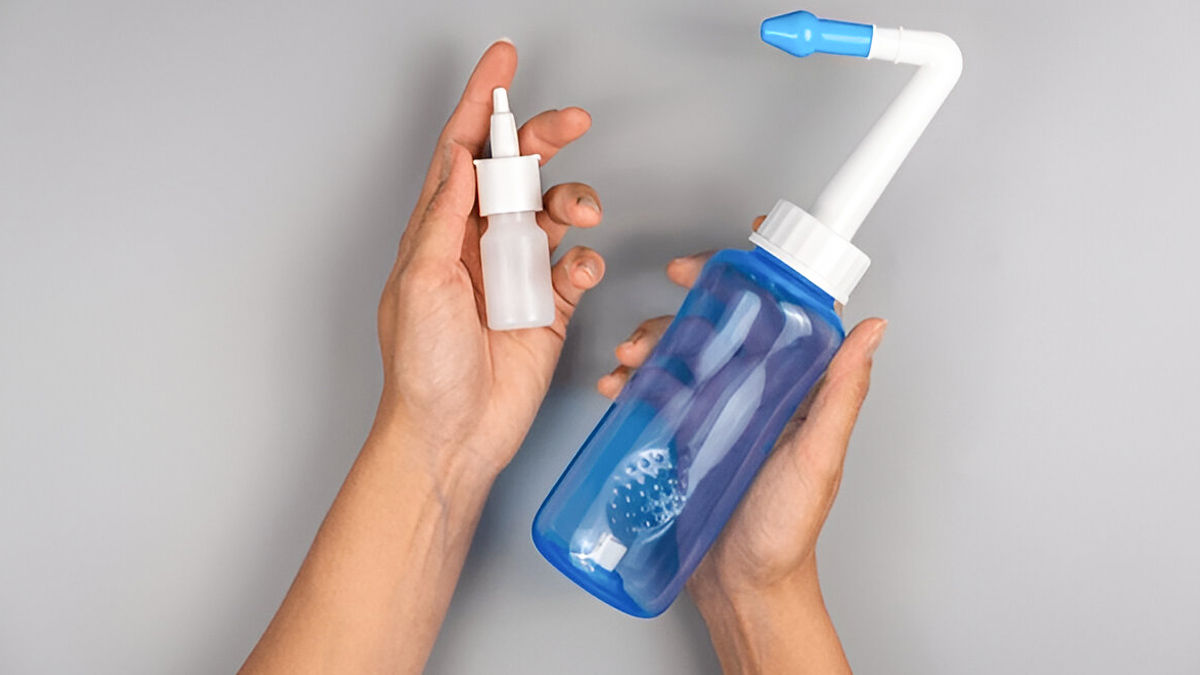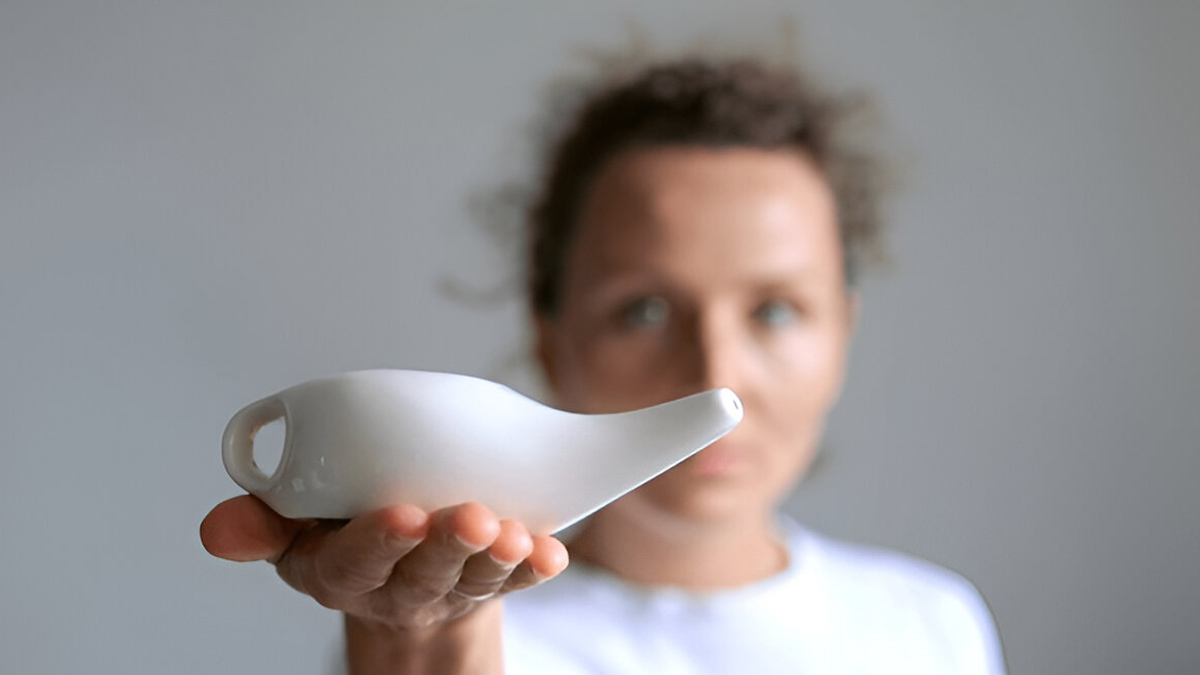
Nasal rinse, or nasal irrigation, is done to clear the nasal passages. Sometimes, the nasal passage can be full of mucus, allergens, and irritants, which can lead to discomfort. In such cases, nasal rinsing can clear any sort of congestion. Moreover, it can also help relieve symptoms of sinus infection. However, not following the right technique to rinse your nasal passageways can do more harm than good. In fact, experts believe it can increase one's risk of infections.
Table of Content:-
In an interaction with the OnlyMyHealth team, Dr Shrekha Komath Padmakshan, Associate Consultant ENT, Fortis Hospital, Kalyan, shares the most effective way to do a nasal rinse.
Also Read: Why You Should Avoid Nasal Rinsing With Unsterilised Tap Water
Benefits Of Nasal Rinse

A healthy nasal passage refers to a nasal passage that is pinkish-red in colour, moist, and clear of excessive mucus. There shouldn't be any swelling, pain, or discharge. Additionally, the passage should be free of congestion, allowing for easy breathing. A nasal rinse helps keep it that way.
Some of the key benefits of nasal rinsing include:
- Flushing out mucus, pollen, dust, and other debris from the nasal passages, alleviating congestion and making it easier to breathe.
- Helps reduce symptoms like a stuffy or runny nose, sneezing, and nasal pressure associated with allergies and colds.
- Adds moisture to the nasal passages, which can be helpful in dry environments or during winter months.
- Helps improve the function of the cilia (tiny hairs) in the nasal passages that help remove mucus and debris.
Why Proper Technique Matters

According to Dr Padmakshan, using improper techniques to rinse your nasal passage can lead to ear irritation, fluid retention in the nasal cavity, and headaches. Some of the common mistakes people make include using tap water without sterilisation, not tilting their head correctly, and not using the right amount of solution.
What Types Of Water Are Safe To Use?
Saline is the safest solution for a nasal rinse, says Dr Padmakshan. This is because it mimics the natural salt concentration in the body, which is less likely to cause irritation or burning compared to using plain water or other solutions.
According to the US Food and Drug Administration (FDA), distilled or sterile water can also be used for nasal rinsing. Additionally, boiled and cooled tap water — boiled for 3-5 minutes, then cooled until it is lukewarm — is also safe for use.
One can also use water passed through a filter designed to trap potentially infectious organisms.
Neti Pot Vs. Saline Spray
Neti pots help cleanse your nasal passages and sinuses by washing away dust, allergens, excess mucus, or any crust that may form after a nasal procedure. This gentle rinsing can ease congestion, reduce irritation, and aid healing, helping you breathe more comfortably.
Saline sprays, on the other hand, add moisture and ease congestion without actually clearing away debris. While both are helpful for nasal health, they work in different ways; a neti pot clears out whatever’s causing discomfort, while a spray focuses on keeping things moist and relieving swelling.
Also Read: Have A Stuffy Nose? Home Remedies That Can Help Unblock It
How Often Should You Perform Nasal Rinses?

Dr Padmakshan recommends performing a nasal rinse once a day, particularly if you are suffering from a cold or allergies and have been advised to do so by your doctor.
Patients who have undergone sinus surgery are advised to rinse 2-3 times a day.
Who Should Avoid Nasal Rinsing?
It is important to note that nasal rinsing should only be done if advised by a doctor for allergies, chronic sinusitis or post-surgery. “It should not be used in patients who have had recent trauma or neurological problems (which can lead to aspiration), and it should be used with caution in immunocompromised patients, as it can lead to infection if proper precautions are not taken,” says Dr Padmakshan.
Conclusion
Nasal rinsing can provide much-needed relief when you’re struggling with congestion, allergy symptoms, or sinus issues. However, it is vital to do it safely and the right way.
Using saline solution, following proper technique, and avoiding it when a doctor says you shouldn’t can make all the difference. At the end of the day, nasal rinsing is meant to ease your discomfort, not add to it, so make sure you’re gentle and careful, and always listen to expert advice.
Also watch this video
How we keep this article up to date:
We work with experts and keep a close eye on the latest in health and wellness. Whenever there is a new research or helpful information, we update our articles with accurate and useful advice.
Current Version